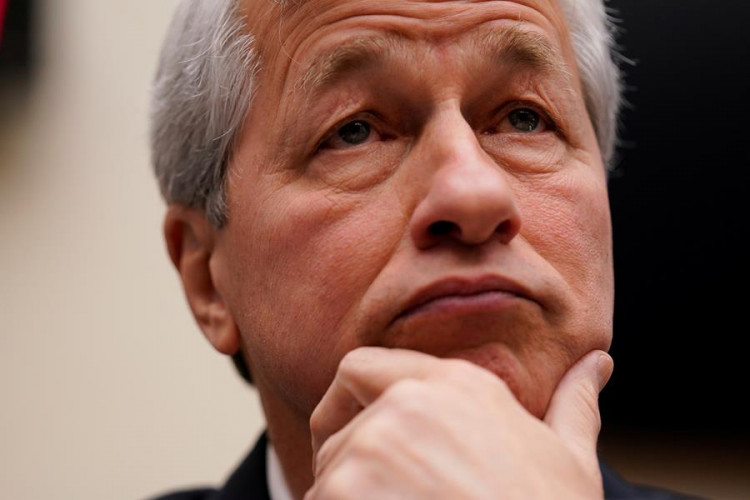JPMorgan Chase CEO Jamie Dimon issued a cautionary note on inflation and interest rates, despite recent signs of easing price pressures. Speaking alongside the bank's second-quarter results, Dimon warned that inflation might persist longer than expected, driven by factors such as large fiscal deficits, infrastructure needs, and global geopolitical tensions.
"There has been some progress bringing inflation down, but there are still multiple inflationary forces in front of us: large fiscal deficits, infrastructure needs, restructuring of trade and remilitarization of the world," Dimon said. "Therefore, inflation and interest rates may stay higher than the market expects."
This warning came on the heels of data showing a dip in the monthly inflation rate for June, the first decline in more than four years. The consumer price index fell by 0.1% from May, bringing the annual rate to 3%, its lowest level in over three years. This development had fueled speculation that the Federal Reserve might soon cut interest rates.
Federal Reserve Chairman Jerome Powell acknowledged these inflationary improvements earlier in the week but expressed concern that maintaining high interest rates for too long could hinder economic growth. He hinted at potential rate reductions, contingent on continued progress in curbing inflation.
Meanwhile, JPMorgan Chase reported a substantial 25% surge in second-quarter profits, largely due to a one-time accounting gain and a revival in its Wall Street operations. The bank's net income reached $18 billion, significantly boosted by an $8 billion gain from an exchange of shares in Visa. Excluding these gains, JPMorgan's earnings stood at $13.1 billion, marking a 9% decline from the previous year.
The bank's investment banking division performed particularly well, with fees rising 50% from last year and 17% from the previous quarter to $2.35 billion. Revenue from mergers and acquisitions surged to $785 million, its highest level since the third quarter of 2022. This strong performance is a positive indicator for other major institutions with substantial investment banking operations, such as Goldman Sachs and Morgan Stanley.
However, JPMorgan also faced challenges, reflecting the broader economic environment. Net interest income, a key measure of lending profit, fell for the second consecutive quarter by 1%. Despite this, the bank is maintaining its full-year net interest income forecast of $91 billion, excluding trading revenue, which would represent a 2% increase from the previous year.
JPMorgan's stock fell by over 1% in pre-market trading following the earnings report. Dimon emphasized the need for vigilance amid ongoing geopolitical tensions and persistent inflationary pressures. "While market valuations and credit spreads seem to reflect a rather benign economic outlook, we continue to be vigilant about potential tail risks," he stated.
The results from JPMorgan kicked off the earnings season for the U.S. banking industry, with lenders striving to demonstrate their resilience amid uncertainty about the U.S. economy, monetary policy, and the upcoming presidential election. Dimon's remarks underscore the challenges that lie ahead, even as JPMorgan showcases its ability to navigate through complex economic landscapes.
Dimon's cautionary note on inflation and interest rates highlights a key concern for both the banking sector and the broader economy. With large fiscal deficits and geopolitical uncertainties continuing to exert pressure, the path forward remains fraught with potential risks. As JPMorgan and other financial institutions release their earnings, their performance will be closely watched as a barometer of economic health and stability.






